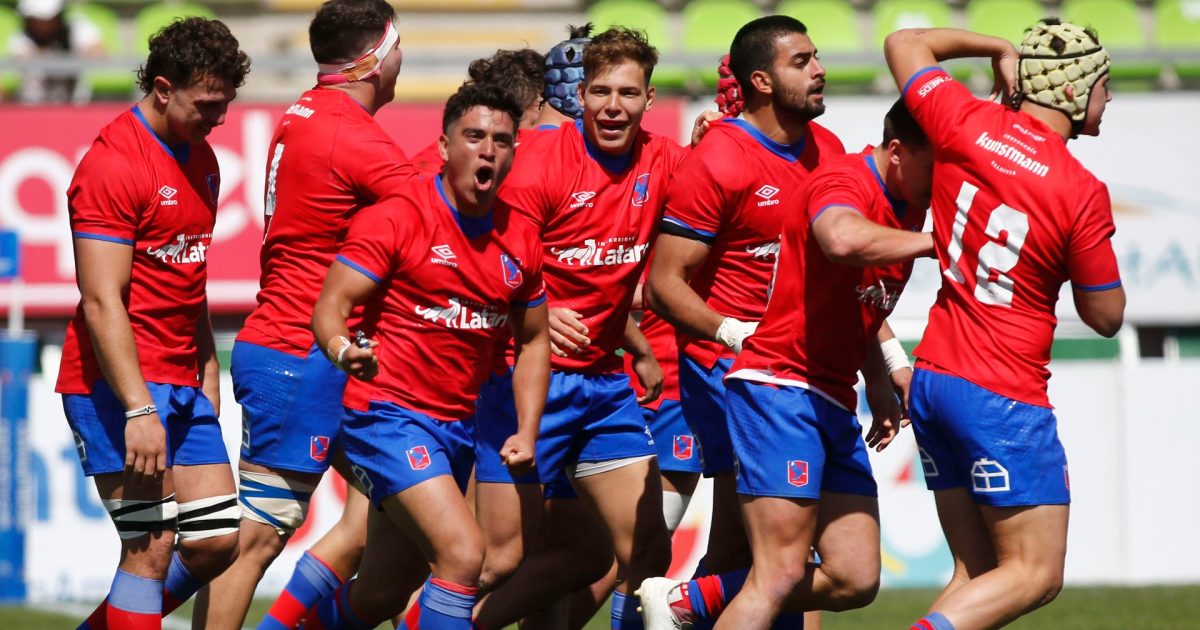Huit jours après le début de la Coupe du Monde de Rugby 2023, les Samoa disputeront leur premier match contre le Chili, nouveau chouchou du grand public, au Stade de Bordeaux.
Les incroyables supporters du Chili ont fait monter la température lors du tout premier match de l’histoire des Sud-Américains dans la compétition à Toulouse, contre le Japon, la semaine dernière. Il risque d’en être de même à Bordeaux.
HISTORIQUE
Le Chili et les Samoa ne se sont jamais rencontrés au niveau international.
MATCH MARQUANT
On ne peut faire plus mémorable qu’un premier match. Le Chili est devenu la première équipe à faire ses débuts dans la compétition depuis 12 ans contre le Japon. Malgré la défaite, il est certain que les hommes de Pablo Lemoine se souviendront très longtemps de ce match.
En 1991, les Samoa, alors appelées Samoa occidentales, faisaient leurs débuts en Coupe du Monde de Rugby et impressionnaient la planète en battant le Pays de Galles (16-13) à Cardiff, se qualifiant au passage pour la phase à élimination directe.
POINT-CLÉ
Les joueurs qui n’ont plus joué au niveau international depuis 36 mois peuvent désormais jouer pour une nation avec laquelle ils ont un lien familial fort. C’est le cas des anciens All Blacks Lima Sopoaga, Steven Luatua et Charlie Faumuina ou de l’ex-Wallaby Christian Leali’ifano qui peuvent désormais représenter la terre de leurs ancêtres.
LE DUEL
Christian Leali’ifano contre Rodrigo Fernandez. Diego Escobar, héroïque à Toulouse, est sur le banc. Mais Fernandez, autre héros de la sélection et auteur du tout premier essai du Chili en Coupe du Monde de Rugby, est là. Il se frottera à l’expérimenté Christian Leali’ifano, qui a fait ses débuts pour les Samoa cette année contre le Japon et qui aura 36 ans le 22 septembre.
LA STAT INCROYABLE
Avant le forfait de Nicolas Garafulic sur blessure, le Chili comptait quatre groupes de frères dans son effectif de 33 joueurs.
L’ARBITRE
Paul Williams (Nouvelle-Zélande). À cause des restrictions liées à la pandémie de Covid-19 en vigueur à l’époque, Williams est devenu, en octobre 2020, le premier arbitre né en Nouvelle-Zélande à arbitrer un match de Bledisloe Cup en 40 ans.
LES ÉQUIPES
SAMOA : Duncan Paia’aua; Danny Toala, Ulupano Junior Seuteni, Tumua Manu, Nigel Ah-Wong; Christian Leali’ifano, Jonathan Taumateine; James Lay, Seilala Lam, Michael Alaalatoa (captain), Chris Vui, Theo McFarland, Taleni Junior Agaese Seu, Fritz Lee, Steven Luatua
Remplaçants : Sama Malolo, Jordan Lay, Paul Alo-Emile, Sam Slade, Sa Jordan Taufua, Ereatara Enari, Lima Sopoaga, Ed Fidow
CHILI : Inaki Ayarza; Santiago Videla, Domingo Saavedra, Matias Garafulic, José Ignacio Larenas; Rodrigo Fernandez, Marcelo Torrealba; Javier Carrasco, Tomas Dussaillant, Matias Dittus, Pablo Huete, Santiago Pedrero, Martín Sigren (captain), Clemente Saavedra, Raimundo Martínez
Remplaçants : Diego Escobar, Salvador Lues, Esteban Inostroza, Javier Eissmann, Alfonso Escobar, Ignacio Silva, Benjamin Videla, Pablo Casas



